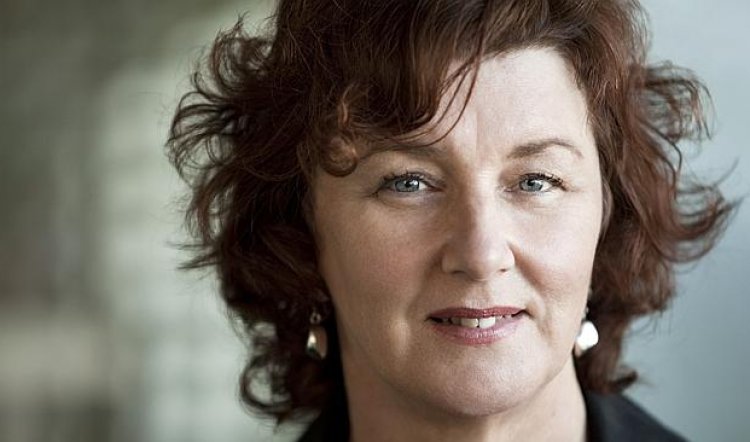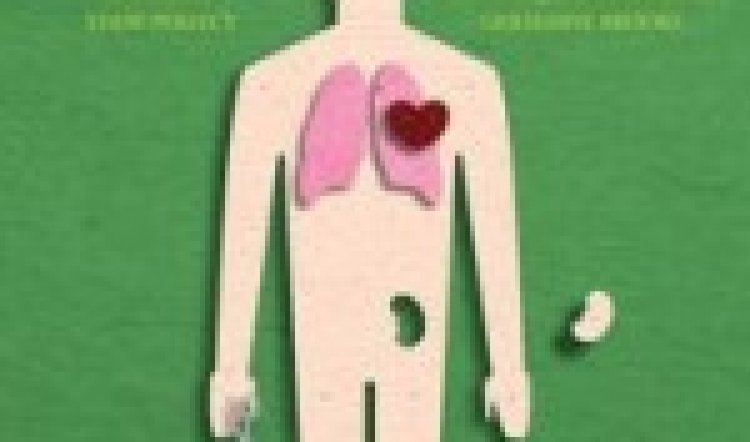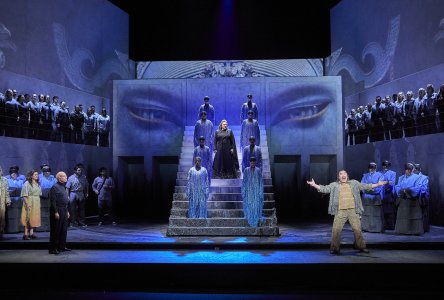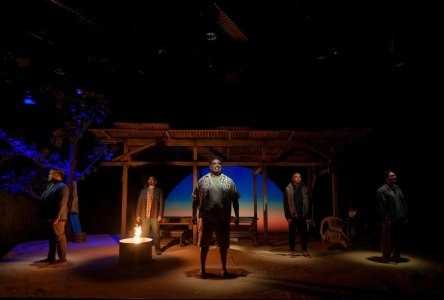
USEFUL
USEFUL by Debra Oswald, Penguin Australia, 312pp, $32.99.
These days Debra Oswald is extremely well known – and rightly so – as the co-creator and head writer of one of the best and most successful TV series of recent years: Offspring. Long before that however, she was a playwright and children’s author, and successful at both. In 1987 she scored a national smash hit with the play Dags – a multicultural Aussie retelling of the Cinderella story – and she also had great success with Gary’s House (1996), Mr Bailey’s Minder (2005), The Peach Season (2007), Stories in the Dark (2008) and House on Fire (2010) among others.
Her kids’ and young readers’ books have made even more regular appearances and include Me and Barry Terrific, Nathan and the Ice Rockets, The Redback Leftovers, Frank and the Secret Club, Getting Air and Blue Noise. Gradually, however, over the years she has moved away from stage writing towards television – not least because it seemed TV people actually wanted her to do it and to pay her for doing it, whereas theatre was a constant struggle against indifference and rejection.
Mr Bailey’s Minder and The Peach Season, for instance, sat on the reject pile at Griffin Theatre for some years before being almost accidentally taken up and staged. Not only were both successful with audiences, but won the Griffin Award for New Australian Playwriting and the Seaborn Playwright’s Award respectively. Small rewards in the end for years of ignore.
Oswald is, like many writers, a tiny bit fragile when it comes to constant and continuing knock-backs and is not much given to self flagellation either. Aware that she could and did do very well writing for such TV milestones as Palace of Dreams, Police Rescue (more awards for these scripts), Wildside, The Secret Life of Us, Dancing Daze and Bananas in Pyjamas, she was early in to taking television seriously and was therefore on the crest of the wave that produced Offspring.
So now, with that extraordinary achievement behind her but still in the zeitgeist (how could you kill Patrick, you bitch), she decided, for the first time, to turn her attention to a novel for adults and the result is Useful.
Anyone familiar with Oswald’s preoccupations and style will immediately fall for Useful. It’s deceptively light, shockingly dark, richly plotted and beautifully written. It opens with 34-year-old Sullivan Moss – Sully to his long-suffering friends – in the middle of committing suicide by throwing himself off the 23rd floor of a Sydney high-rise. As the book then continues for another 300+ pages it can be no surprise that he fails.
Sullivan Moss is a failure at everything (hence the big jump: something he thinks even he can’t stuff up). He’s a drunk, a wastrel, a serial lousy boyfriend and lover; he has a low sperm count and he has just let down for the umpteenth time his two best male friends, his ex-wife and virtually anyone else he’s passed in the street.

Initially Sullivan Moss is possibly the least attractive modern Australian hero since Andrew McGahan’s Gordon Buchanan of 1988 and Praise. You can imagine these two – Sully and Gordon – meeting in a seedy pub and understanding each other only too well, but there are two crucial differences in the tales of the these men: optimism and redemption.
Oswald is a cunning and subtle writer and although she pulls no punches in the telling of hopeless Sully’s hopeless tale, there are tiny droplets of optimism and redemption splashed on the path towards the final outcome that keep the reader sniffing the air and hoping for the best – despite apparently insuperable odds.
When Sully regains consciousness after the botched suicide he decides he will do something good, for once. He figures he will donate a kidney to someone more deserving and needy. That his internal organs are possibly not worth harvesting is his first problem and one of the more serious and well wrought strands of the book is how he manages to stay off the booze and out of trouble while undergoing the psychological assessment and preparation for the donation. By accident he finds himself with somewhere to live, clothes to wear (he’d got rid of everything prior to the jump) and a one-eyed dog for company. He also gets a job in asbestos removal and manages to hang on to it as well as making friends with a nice woman and her young son.
None of what happens to Sully is world-shaking – it’s just life as it might be lived by someone who hasn’t done any of it very well. And although that sounds as if it’s on the wrong end of dull, it’s anything but. Oswald has created a lavishly ordinary set of circumstances and characters that are alternately sweetly and irritatingly compelling. Whenever you feel a twinge of sympathy for Sullivan she gives the narrative a twist and the next page has you reaching for a mallet to whack him. Much the same happens with all his friends and acquaintances: he is beyond exasperating but there is the tiniest thought that “there but for the grace of...” lurking in the background. He has to be one of the most maddening and authentic men ever to leap off a page.
Although the game has been given away somewhat by mentioning that optimism and redemption are part of the mix, the twists and turns of Sullivan’s story are neither straightforward nor predictable. Oswald has created a group of characters around him rich in colour and credibility and their city is as matter-of-fact and real-smelling as one might hope of a Sydney that’s not being a tourist attraction or painted backdrop.
Sullivan is a loser, but not a no-hoper, despite himself and the misunderstandings and miscues that happen to him along the way are excruciating for being so instantly recognisable. Loved it.



